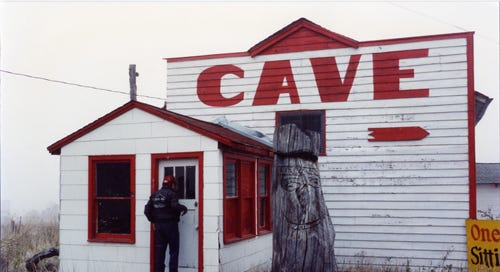Caving on Bill C-18: Government Outlines Planned Regulations that Signal Willingness to Cast Aside Core Principles of the Online News Act
Canadian Heritage Minister Pablo Rodriguez has insisted for months that Bill C-18, the Online News Act, is a market-based approach that would leave it to the Internet platforms and Canadian media outlets to negotiate deals based on the principle of mandated payments for links. Faced with the prospect of Meta and Google’s recent announcements that they would block news links in order to comply with the legislation, it would appear that the government has caved on the bill as it searches for a face-saving compromise. Rodriguez and Prime Minister Trudeau had tough talk last week, but behind the scenes they were seemingly ready to cast aside the core principles that they claimed were essential to the legislation.
Earlier today, Canadian Heritage released a “next steps” document that outlines the planned forthcoming regulations. Those new regulations will effectively rework the legislation by shifting from mandated payments for links with uncapped liability to a threshold contribution customized for each company established by government regulation. Moreover, the contributions will incorporate existing deals and other contributions such as marketing dollars. The specific language from the government states:
The Minister of Canadian Heritage intends to propose regulations that would:
Establish a financial threshold for contributions to sustainability of the Canadian news marketplace, outlined in subparagraph 11(1)(a)(vi) of the Act. The threshold would be based on a platform’s estimated Canadian revenues and would be specific to each platform and their position within the news marketplace.
Reaffirm language from the Act that non-monetary offerings to news organizations, such as training or other products, be included in the CRTC’s evaluation of exemption criteria.
Consider existing agreements that the digital platforms have reached with news businesses, provided that they reflect the criteria outlined in Section 11 of the Act.
Provide clarity on what constitutes a “significant portion” of independent local news businesses, Indigenous news outlets, and official-language minority community news outlets under subparagraphs 11(1)(a)(v), 11(1)(a)(vii), and 11(1)(a)(viii), respectively.
Provide more details on the thresholds that fulfill the requirements outlined in section 11 of the Act.
Unpacking this language, the government intends to establish regulations that would set the minimum financial contribution by each company (Google and Meta) that would be based on its Canadian revenues. The companies could meet that amount by including both their existing deals and non-monetary contributions (training, free ads, etc.). This model would likely meet many of Google’s stated structural requirements, since it no longer links payments to links, caps liability, and accounts for other contributions. The company would add up its existing deals, strike new ones with broadcasters and other independent outlets (hence the clarity on what is needed), and leave it to the CRTC to grant an exemption.
There are several aspects of this proposed regulatory process that merit comment. First, there is no deal yet. The Parliamentary Budget Officer estimated hundreds of millions for links from these two companies annually. If the government is still thinking in those terms, it may have a better structure, but wildly unreasonable expectations that keeps the door open to blocked news links or sharing. The Canadian precedent will involve more than just payments for links. It also includes what amounts to a tax on revenues to support the news sector and a big number could lead to billions in liability globally.
Second, even if the government manages to find a compromise with Google, it seems unlikely that there will be one with Meta. Meta has left no doubt that it will not pay for links and that news has limited value on its platform. With the government suspending its advertising on the platform (even as the Liberal party continues to advertise and MPs race to create Threads accounts), it is hard to see a road back for Meta. If that is the case, Bill C-18 is already a disaster as the lost links and cancellation of existing deals mean that Bill C-18 may result in a net loss for the media sector.
Third, the role of the CRTC as independent arbiter is basically eliminated by government with these regulations. The Commission is supposed to determine what is needed to qualify for an exemption from final offer arbitration. If these regulations take this structure, the government is telling the CRTC what spending is needed to obtain an exemption and its role is limited largely to being a bean counter.
Fourth, this quagmire is entirely the government’s own making. There were alternative options proposed that look much like this structure. Those were consistently rejected and those proposing the alternatives dismissed as shills. Yet faced with emerging disaster that is Bill C-18, the government seems prepared to ditch the principles it said were critical in its news bill in the hope of a face-saving compromise. Whether it is also willing to drop the visions of hundreds of millions for the sector will likely determine whether it can convince at least one of the platforms to drop their plans to block news links or news sharing in Canada.
Post originally appeared at https://www.michaelgeist.ca/2023/07/caving-on-bill-c-18-government-outlines-planned-regulations-that-signal-willingness-to-cast-aside-core-principles-of-the-online-news-act/
Find me on:





Fantastic news for Canadians and freedom of the press in Canada.
do you think this war is good for Canadian substack writers?
it seems like if legacy media is banned from Google and Facebook, that would only help level the playing field for alternative media